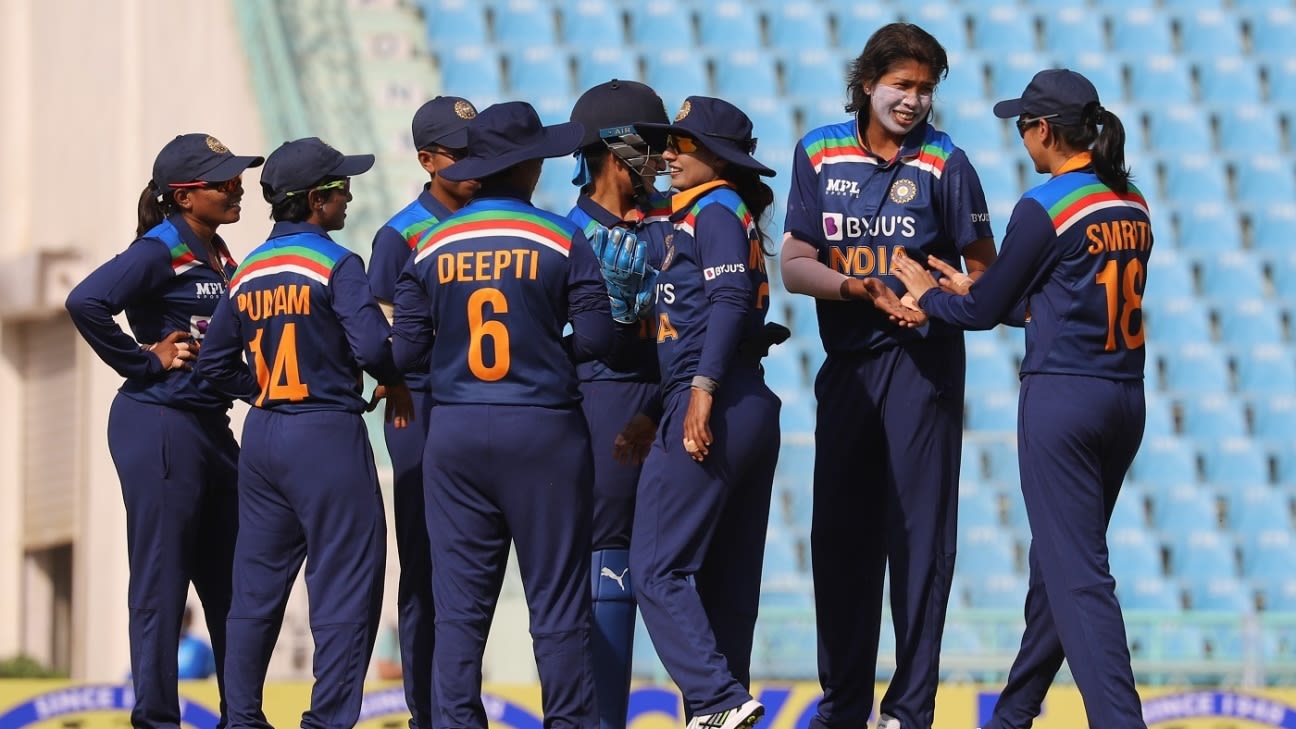Head coach says, “bowlers could not be consistent. But there is no blaming them at all, because it was expected”
India Women’s head coach WV Raman has pointed out that the team “lacked game time” and were “short” in terms of “mental stamina and cricketing fitness” that led to their 4-1 ODI series loss to South Africa Women in Lucknow. Already down 3-1 in the series, India were unable to defend a low score of 188 in the final game on Wednesday which the visitors crossed with five wickets and 10 balls remaining.
India’s women team was playing an ODI series after nearly 15 months, and international cricket after a year since losing the T20 World Cup final at the MCG in March 2020, whereas South Africa were coming on the back of a 2-1 T20I series win and a 3-0 blanking of Pakistan Women at home in January-February this year. It showed in India’s performance in almost all aspects – batting first, they were bowled out for under 200 twice out of four times, on the other two occasions their bowling couldn’t defend totals of 248 and 266, and they also dropped more catches and missed at least two stumpings.
“In terms of what transpired in this series, it’s very simple: the girls lacked the game time and they are obviously short in terms of the mental stamina and cricketing fitness,” Raman said at the post-match press conference. “By that, I mean it’s not easy to come back after 15 months and play a one-day series and retain the focus and the intensity that is required to put the opposition under pressure.
“Yes, these things do happen; it happens to the best of players and the best of teams, and I am sure the girls would have realised what was not really happening, and they will work on it. I have seen them do it in the past and I have no doubts they will do it in the future as well.”
Raman said the bowlers would find their rhythm as they got more game time.
“…The bowlers didn’t get into the groove, as they play more and get more game time. The fact that Rajeshwari (Gayakwad, 10-4-3-13) has managed to do that coming into this game is a positive. That’s what I meant earlier when I said the bowlers need to get into their groove as far as bowling is concerned. That’ll only happen as they play more and more.
“Yes, this is definitely something the girls will work on, quite a lot of activities going forward which will also help them to achieve that. I’m sure it won’t be too long before all of them get into their rhythm and perform as well as they can. The other fact is that we also wanted to play on flat tracks because that is something that might come up when we go abroad. So it’s all a part of having to adapt and adjust to conditions that they may get when they go abroad.”
India’s spinners flattered to deceive this series until Gayakwad’s stifling figures on Wednesday. Legspinner Poonam Yadav went wicketless in her 35 overs from four games, offspinner Deepti Sharma got just one scalp from her 28 overs, and left-arm spinner Radha Yadav leaked 68 runs in her 9.4 overs in the fourth ODI, the only game she played. Overall, India could take more than five South Africa wickets only once, in the second ODI when the visitors were bowled out for 157.
India’s batting was also no match for South Africa’s. The runs mainly came from Punam Raut (one century and two half-centuries) and Mithali Raj (two fifties) who ended the series with strike rates of 71.66 and 67.74 respectively. The visitors, meanwhile, saw consistency from Lizelle Lee (a century and two half-centuries), Mignon du Preez (two fifties) and Laura Wolvaardt (two fifties) of which Lee and du Preez struck at 86.22 and 75.11 respectively in the series.
Raman said it wasn’t easy to just look at the opposition and “imitate” them even if they were doing much better in the same conditions.
“…The batting unit is getting into its groove, it’s gotten into its groove – despite the fact that not all of them got big scores, we managed scores in excess of 250 or around 250,” he said. “What probably didn’t go in our favour was that the bowlers could not be consistent. But there is no blaming them at all, because it was expected.
“The other part is that you cannot really think of something that is done well by the other sides and try to imitate them. We need to try and get into the groove and then see how the entire unit is in terms of form, and then see what we need to do. And then we have to assess and see at what times we need to try and step on the pedal.
“It (setting targets) depends on the conditions, it depends on the kind of attacks that we bat against. It’s very difficult to set a target mentally… see, it’s very easy to lose a game in the first 15 overs. You may not win it. But in trying to be greedy and posting a huge score, you might suddenly lose a few early wickets and start looking down the barrel too early in the game. So you’ve got to take this particular thing as it unfolds out on the field, and maybe take stock of the situation after two-thirds of the 50-overs quota of the innings is finished, and then see what needs to be done.”
The two teams will now play three T20Is on March 20, 21 and 23 at the same ground in Lucknow.
